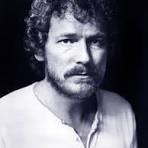Gordon Lightfoot: The Poet Who Refused to Change a Single Word

Gordon Lightfoot: The Poet Who Refused to Change a Single Word
He walked into a Toronto studio in 1976 with a twelve-string guitar slung over his shoulder and a story too heavy to hold in silence. The lights were dim, the air thick with coffee and cigarette smoke, and the room fell quiet as Gordon Lightfoot settled into his seat. With no introduction, he began to play.
One take. Six minutes.
That was all it took to record “The Wreck of the Edmund Fitzgerald,” a ballad honoring the 29 men lost to Lake Superior. When his record label insisted the song was too long for radio and needed trimming, Lightfoot didn’t hesitate. “Not one word,” he said. He wasn’t interested in formulas or charts. He was interested in truth — and truth, he believed, shouldn’t be edited for convenience.
Lightfoot’s songwriting was a craft all its own. His classics — “If You Could Read My Mind,” “Sundown,” “Carefree Highway” — seemed effortless until you tried writing something half as good yourself. Every line carried the precision of a stonemason’s chisel. He carved lyrics that stood like monuments: weathered, enduring, and unmistakably human.
He came from Orillia, Ontario, a quiet boy with a choir voice that rose through church rafters like morning light through stained glass. But the small town couldn’t hold him forever. With a guitar and a restless heart, he found his way into coffeehouses, bars, and stations — anywhere a song could warm a cold night.
During a decade when music exploded into protest anthems and psychedelic soundscapes, Lightfoot chose a different path. He wrote ballads about rain, distance, regret, and the quiet persistence of ordinary people. Bob Dylan called him one of his favorite songwriters. Elvis Presley and Johnny Cash covered his songs. Still, Lightfoot remained rooted in Canada. “This is where the stories come from,” he said. “And I still have a few left to tell.”
But his journey was not without storms. Alcohol nearly unraveled him. There were nights he couldn’t finish a set, nights he couldn’t remember at all. Once, he collapsed mid-song, guitar still humming as the audience froze. The man who gave Canada its musical folklore nearly lost himself to his own shadows.
Then came the winter that nearly ended everything.
In 2002, Lightfoot suffered an aortic aneurysm and slipped into a coma. Obituaries were drafted. Friends prepared their goodbyes. But death, it seemed, had arrived too early. Against every expectation, Lightfoot woke — frail, diminished, but alive.
When he finally returned to the stage, the audience rose before he even touched the microphone. His voice was softer, his movements slower, but the room held its breath. The first notes cracked — then steadied. The rhythm returned. The poet in denim had come back from the edge.
Gordon Lightfoot spent his life chasing stories, not fame. He wrote with humility, performed with honesty, and carried the weight of his songs like a responsibility. And even after near-death, he continued to do the only thing he ever truly wanted: tell stories the way only he could, without changing a single word.











